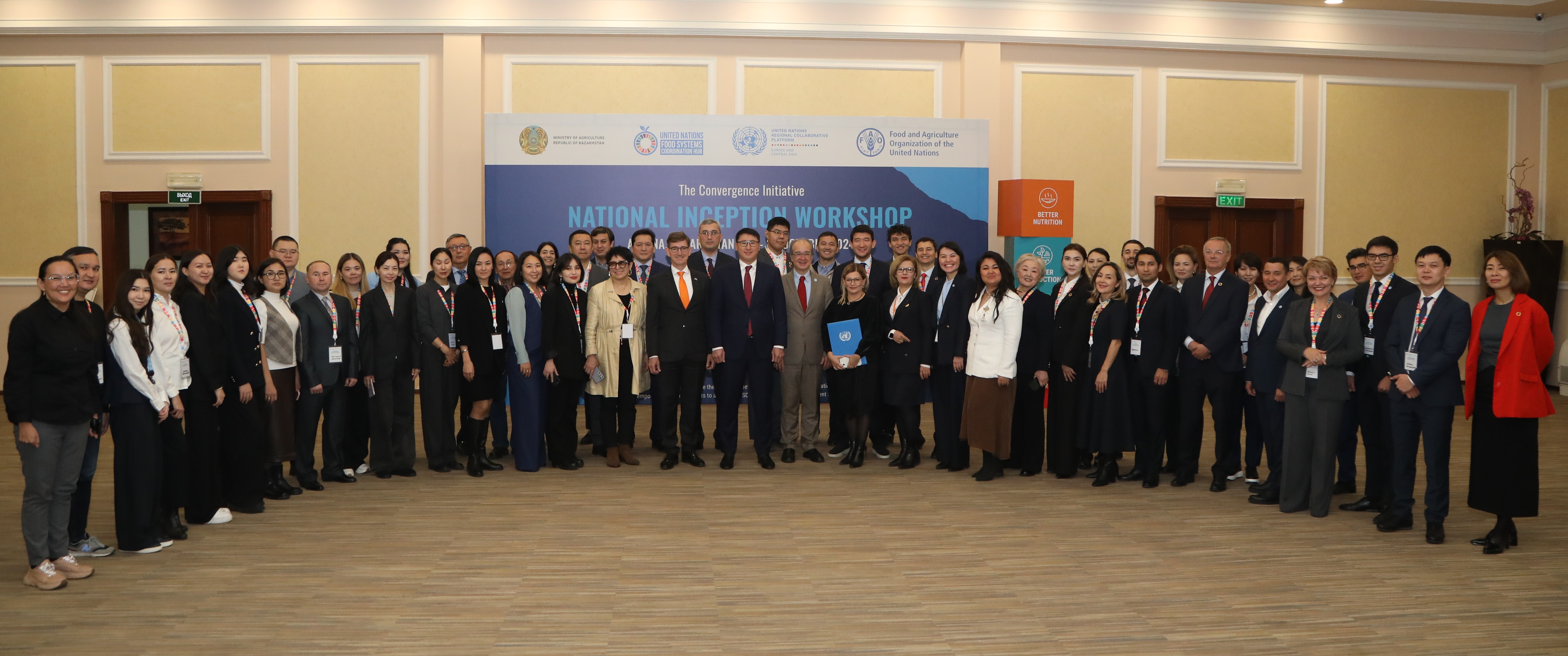SEED FUNDING JOINT PROGRAMMES
Cambodia
Transforming Cambodia’s food systems to become more sustainable, inclusive, and resilient


PROJECT TITLE | Transforming Cambodia’s food systems to become more sustainable, inclusive, and resilient |
| Context | Cambodia’s National Pathway is the outcome of an extensive consultation process, involving more than 2,000 people throughout thirty dialogues, which identifies four priority areas, namely healthy diets for all, empowerment of youth, women and vulnerable groups, resilient livelihoods and food systems, inclusive governance. Acknowledging the risks posed by climate change to hard won development gains and as a co-founder of the Alliance of Champions for Food Systems Transformation, Cambodia is prioritizing the integration of climate change and food systems transformation, building coherence across the agendas. The Council for Agricultural and Rural Development, the government agency coordinating food security and nutrition initiatives in Cambodia, is leading collaborative efforts to translate national aspirations into concrete action. |
| PUNOs | FAO, WFP, UNICEF |
| Contribution to SDGs | SDG 2 Zero Hunger |
| Contribution to other SDG transitions | Climate, biodiversity, pollution |
| Duration | August 2024 – July 2025 |
| Expected financial leverage | $3 million |
| Alignment with SG Call to Action | Policy integration; Food systems governance; Inclusive and participatory design; Private sector engagement |
| Outcomes | The Joint Programme fosters an enabling environment for food systems transformation by enhancing national capacities and policy frameworks, identifying opportunities to unlock financial streams, and strengthening advocacy efforts for food systems transformation. The JP provides crucial support to the alignment of the climate and food agendas, accelerating progress towards resilient, sustainable and inclusive food systems. |
| Partners | Council for Agricultural and Rural Development (CARD) will be the main government counterpart and will coordinate the government activities in conjunction with other key Ministries, including:
|
| Outputs |
|
Kazakhstan leads as first pilot country for the Convergence Initiative

Astana, Kazakhstan – A two-day workshop took place in Astana, Kazakhstan, on October 23-24 to launch the National Inception Workshops for the Convergence Initiative, marking a significant step in aligning food systems transformation with climate action.
As the first pilot country for the Convergence Initiative, Kazakhstan is set to play a crucial role in integrating these agendas to advance progress toward the Sustainable Development Goals (SDGs) and commitments under the Paris Agreement.
The workshop, organized in collaboration with the UN Food Systems Coordination Hub, Kazakhstan’s Ministry of Agriculture, the UN Issue-Based Coalition on Sustainable Food Systems (IBC-SFS), and the Food and Agriculture Organization (FAO), brought together key food systems actors, including policymakers, technical experts, private sector leaders, youth, and civil society. This diverse group united to develop a practical roadmap for action, highlighting Kazakhstan's leadership in modernizing agricultural systems while addressing the broader climate crisis.
The Convergence Initiative builds on two key food systems milestones: the UN Secretary-General’s Call to Action for Accelerated Food Systems Transformation (UNFSS+2) and the COP28 UAE Declaration on Sustainable Agriculture and Climate Action. These initiatives underscore the importance of integrating food systems transformation with updates to Nationally Determined Contributions (NDCs) and National Adaptation Plans (NAPs) to effectively tackle climate change.
“We have a unique opportunity to lead towards carbon neutrality by 2060 and a green economy in Kazakhstan. Our first step is to enhance policy coherence, addressing challenges like water scarcity, land degradation, and inclusive policies that empower all stakeholders—especially women farmers. Let’s modernize our agricultural sector for sustainable, resilient agri-food systems!” said Katarzyna Wawiernia, Acting UN Resident Coordinator in Kazakhstan.
Building on initiatives like the Strategy for Achieving Carbon Neutrality by 2060 and the Concept of Agro-Industrial Complex Development until 2030, climate-resilient practices remain an urgent priority for the country.
Raimund Jehle, Co-Chair of the UN Issue-Based Coalition on Sustainable Food Systems (IBC-SFS), emphasized that "the transformation we seek is not simply an agricultural issue – it is a systemic challenge. We need transformative change for sustainable food systems that ensure food security and access to healthy diets for all, integrating climate resilience, biodiversity protection, public health, and economic development, especially for rural communities and women."
Defining Kazakhstan’s convergence strategy
The workshop set the basis for two key outcomes: the Draft Convergence Action Blueprint (CAB) and the establishment of the Convergence Group. The CAB provides a strategic framework tailored to Kazakhstan, integrating NDCs, NAPs, and the national food systems transformation pathway to optimize resources and address critical issues. The Convergence Group will ensure effective implementation, stakeholder engagement, and ongoing strategy refinement. This effort solidifies the Convergence Initiative, aligning Kazakhstan’s goals with global targets and advancing progress toward the SDGs and Paris Agreement.
Nazgul Khatepova, Food Systems National Convenor of Kazakhstan, highlighted that the Ministry of Agriculture is hosting its first-ever event dedicated to the food systems and climate agenda. She emphasized that the FAO and the UN Food Systems Coordination Hub can rely on Kazakhstan as a steadfast partner in advancing food security and sustainable development, with a clear commitment to addressing climate priorities.
Stefanos Fotiou, Director of the UN Food Systems Coordination Hub, highlighted the importance of Kazakhstan's role as a pioneer in this initiative. "Kazakhstan has taken an ambitious step forward as the first pilot country of the Convergence Initiative in this region. This workshop is not just a meeting, but the foundation for long-term systemic change that will ripple across food systems and climate actions in ways that inspire others globally."
As Kazakhstan embarks on this transformative journey, UN Food Systems Coordination Hub, UN IBC SFS, FAO and its partners remain committed to supporting the country in creating sustainable, resilient and inclusive food systems, addressing climate challenges, and empowering all stakeholders—especially those most vulnerable.
